What did Alexander the Great actually die from (6 photos)
There are several versions of this event. 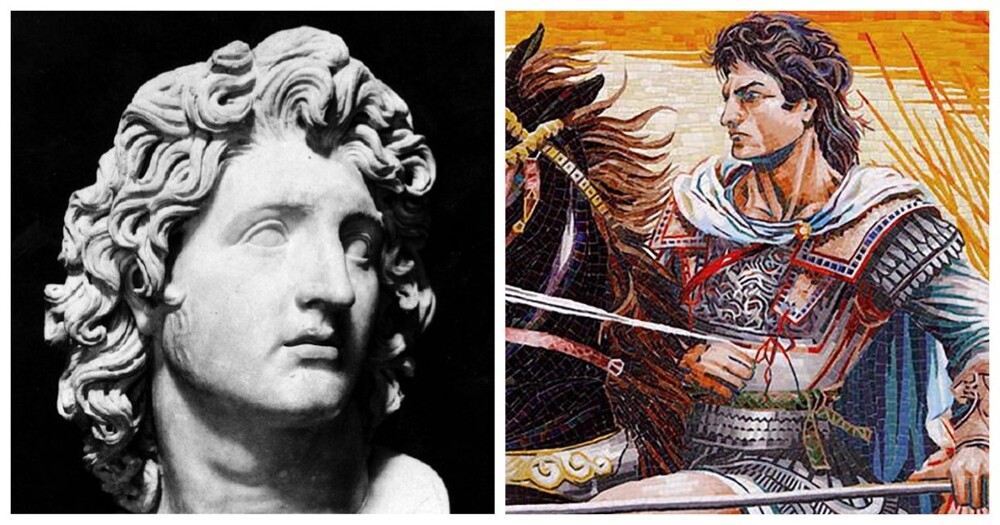
Over the many years of constant wars, Alexander received many wounds. Already in the first serious battle (334 BC), the commander received a blow to the helmet with a sword. But then they were able to drag him away from the battlefield. 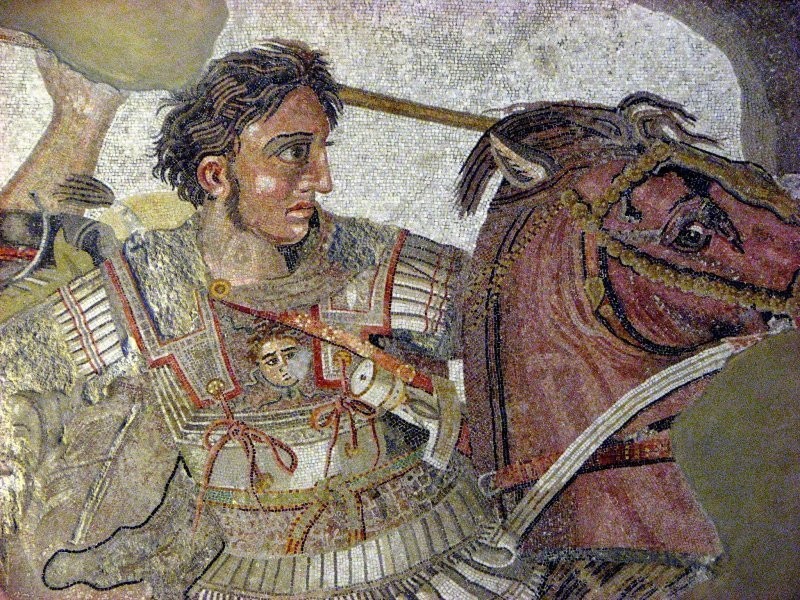
Alexander the Great
During the siege of Gaza, the king received an arrow, and during the assault on Sogdiana his fibula was damaged. I also got hit on the head with a stone.
In 325 BC. The Macedonians besieged the city where the Indian people of the Malls settled. During the attack, an arrow was sent to Alexander's chest and the army decided that the king had been killed. Enraged warriors conquered the city and killed all the inhabitants. But Macedonsky survived. 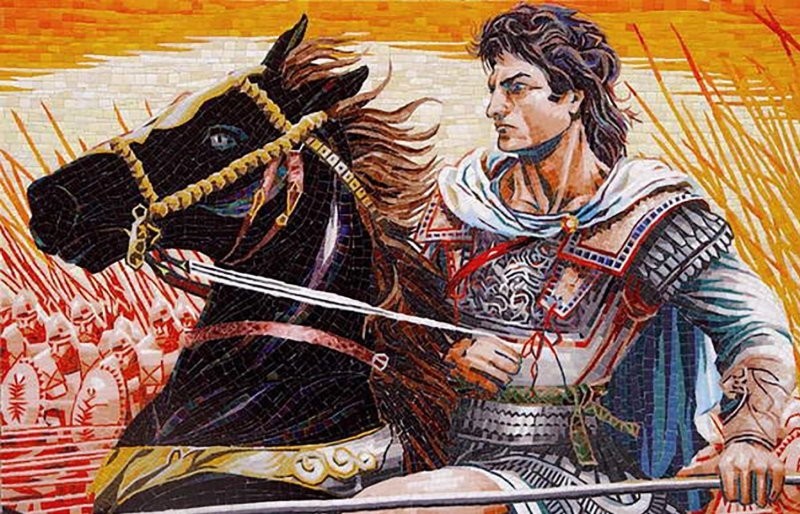
But he died in 323 BC, he was 32 years old. What is the reason?
On the first day, Makedonsky began to have severe abdominal pain and a high fever. The doctors made him vomit and put him in a cold bath, apparently to bring down the fever.
On the second day, the king complained of loss of strength and chills. He also suffered from abdominal pain. Despite this, he went to the feast, ate several rather heavy dishes and drank a lot of wine.
The next day he felt very bad: profuse sweating and difficulty breathing were added to the fever.
In the following days, Alexander's condition quickly deteriorated. He began to hallucinate, and it became difficult to express his thoughts coherently. Then he died. 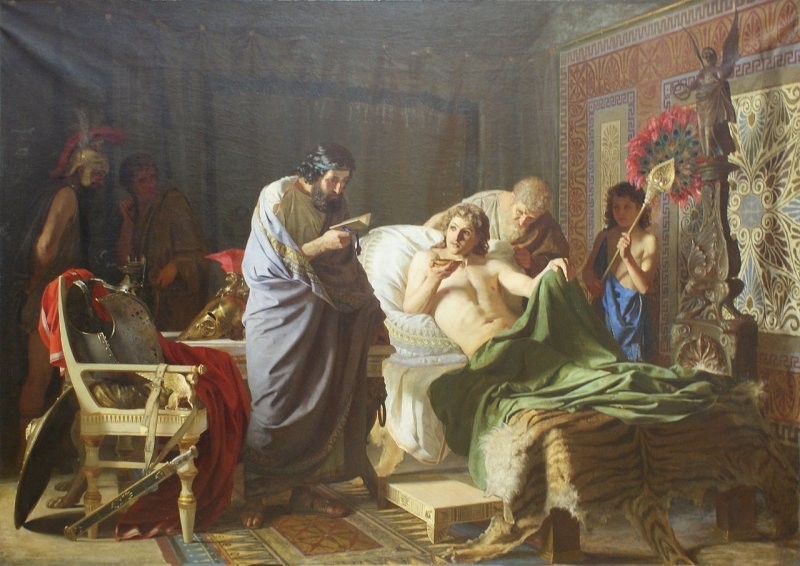
There are several versions:
Acute pancreatic necrosis
The onset of symptoms was characterized by severe abdominal pain after large meals and wine, followed by fever and daily progressive worsening for fourteen days, Greek scientists and historians report.
Here we should not forget that the Macedonians loved to drink undiluted wine - unlike the Greeks. Perhaps Alexander’s body was weak and he died from a banal attack of pancreatitis. 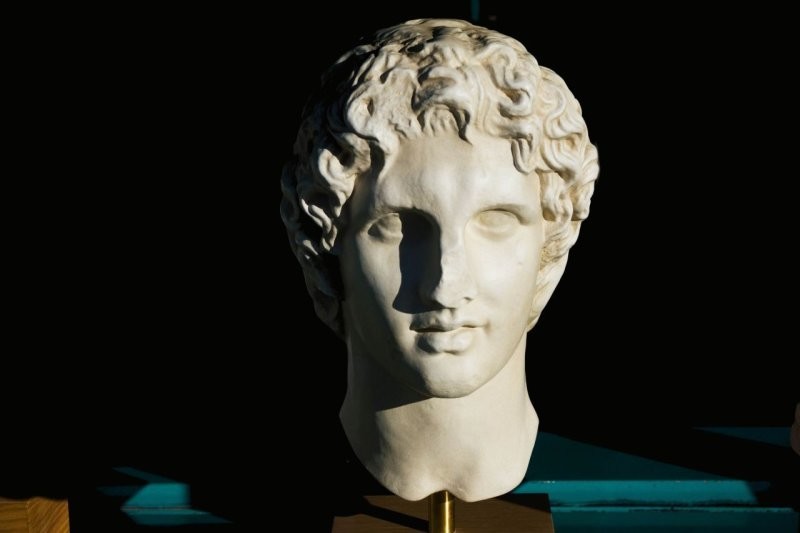
Arsenic poisoning
Many researchers point to this and indicate that the king’s body did not decompose for several days. And this happens precisely at high concentrations of arsenic.
Guillain-Barré syndrome is a severe neurological autoimmune disease. Which was aggravated by constant drunkenness. 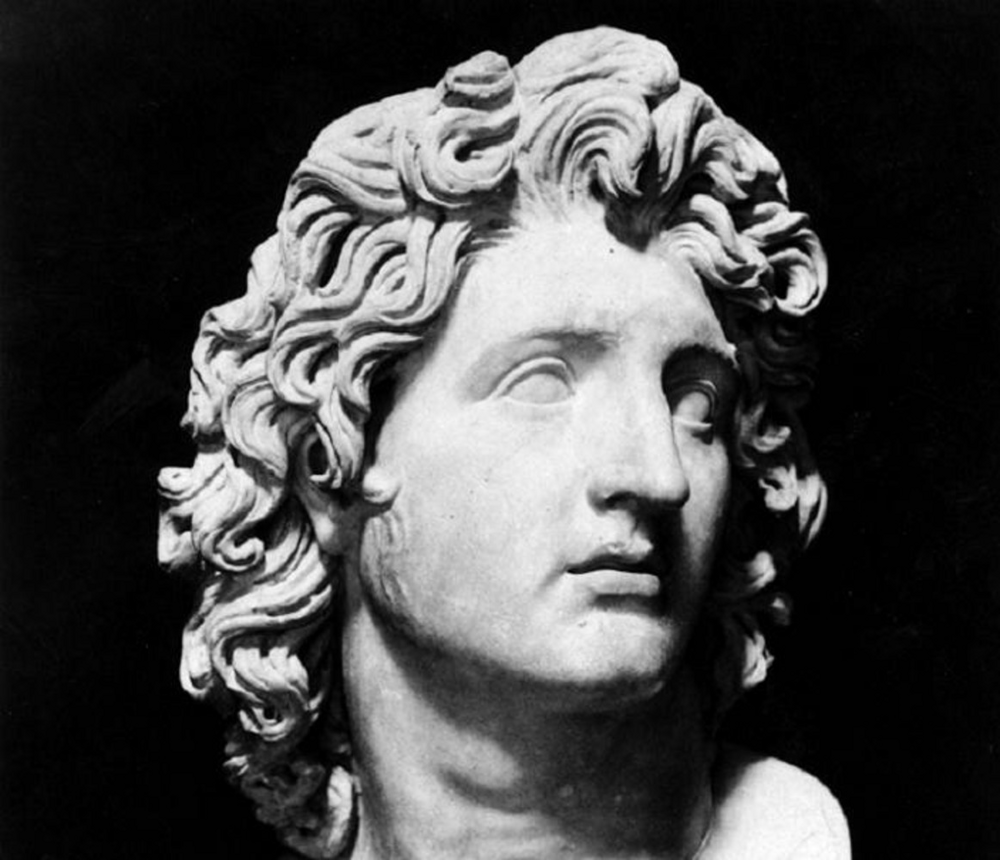
But the most sensible version is about pancreatitis. Perhaps the great king died from a banal inflammation of the pancreas, which can now be treated in a few weeks.























